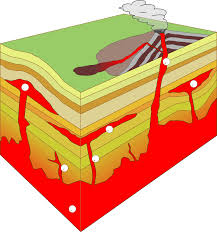
记忆方法
将“intrusion”分解为“in-”和“trusion”。首先,“in-”暗示着某种方向或状态是“进入”或“在里面”,而“trusion”可以联想为“trude”,意味着强行或突兀地推入。将这些元素结合起来,想象某种不受欢迎的、突兀的事物或行为“进入”了某个领域或空间,这就是“intrusion”(打扰或闯入)的概念。
以上内容由AI生成, 仅供参考和借鉴
中文词源
intrusion 侵入,侵犯
来自intrude,侵入,侵犯。
英语词源
- intrusion (n.)
- late 14c., from Old French intrusion (14c.), from Medieval Latin intrusionem (nominative intrusio) "a thrusting in," noun of action from past participle stem of Latin intrudere, from in- "in" (see in- (2)) + trudere "to thrust, push" (see extrusion).
权威例句
- 1. I felt it was a grotesque intrusion into our lives.
- 我感觉那是对我们生活的一种干扰,让人感到荒唐可气。
- 2. They claim the noise from the new airport is an intrusion on their lives.
- 他们声称新机场的噪音侵扰了他们的生活。
- 3. I demand an explanation for your rude intrusion upon my privacy.
- 我要求你对于无礼地侵扰我的私人生活的行为做出解释.
- 4. Unlawful search of, or intrusion into, a citizen's home is prohibited.
- 禁止非法搜查或者非法侵入公民的住宅.
- 5. Their intrusion into our private lives is unwarrantable.
- 他们侵扰我们的私生活是毫无道理的.